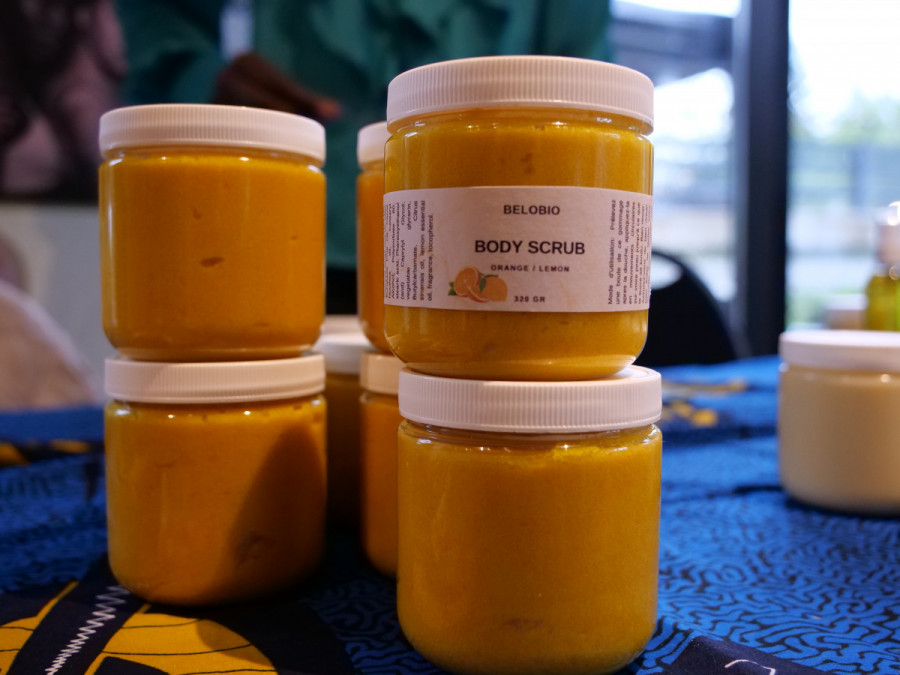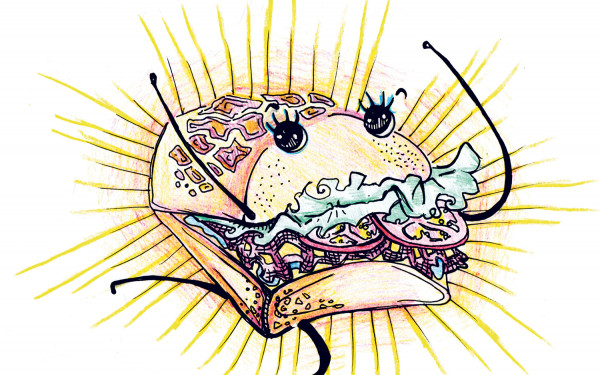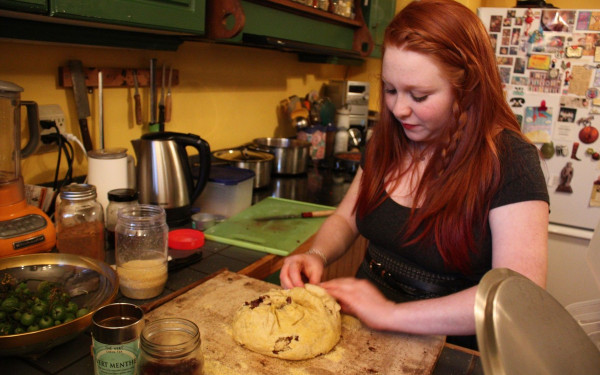First Edition of Festival Afro-Vegan Success Despite Rain
All Aspects of Vegan Lifestyle on Display at Inaugural Event
The Jamaica pavilion at Parc Jean-Drapeau hosted an Afro-Vegan festival for the first time on Sunday, Sept. 18.
time on Sunday, Sept. 18.
Heavy rain did not stop the event from happening. With raincoats, umbrellas, and rubber boots, the festival-goers bravely faced the cold showers to show their support for the festival. The venue was packed.
A cozy and warm feeling reigned inside the pavilion. Djs were playing their best Afrobeat and Caribbean playlists. The vendors were welcoming. The food was freshly made right on the spot. People were surely having a good time.
The event’s main goal was to promote Afro and Caribbean vegan cuisine. “I’m a vegan. I’m a person of color. Veganism is very white-washed. So, I was very excited about coming to something like this. Where we don’t have to deal with white people and their version of veganism,” said participant Naya Salamé.
Salamé was invited by their friend Eli Tareq El Bechalany-Lynch, who first heard of the festival on Instagram. They knew instantly that they had to come support this unique event. They said the food exceeded their expectations
The Afro-Vegan festival is the brainchild of co-founders Luce-Yole Toussaint and chef Evy Mendes, who specialize in vegan cuisine. They had the idea to create this festival because they felt there was a need to “show that veganism has different colors, has different flavors, has different culture,” said Toussaint. They received a lot of help in organizing from Jamal Spence and Harar V. H. Hall who they met through DESTA Black Youth Network—an incubator program for Black and Indigenous chefs.
Some food kiosks were installed outside the venue like Hall’s, owner of Sweet Hart Desserts. Even in the freezing cold rain, she managed to sell all her vegan desserts early. People lined up to get a chance to taste her delicious sweet or savory waffles, jar cakes and edible candles.
The festival was not only about the vegan food itself. Diverse black-owned businesses took over the pavilion to promote their brands and the vegan lifestyle. Each kiosk had a unique view on how to encourage veganism with their goods.
“I’m a vegan. I’m a person of colour. Veganism is very white-washed. So, I was very excited about coming to something like this. Where we don’t have to deal with white people and their version of veganism,” — Naya Salamé
“When I’m thinking of making a new product, I only think [about] natural and vegan ingredients,” said Awa Paulette Sy, the owner of Belobio. Her company sells hair and skin care products, all of which are made by Sy herself.
“People don’t pay a lot of attention to the products they apply on their skin,” Sy said. She added that using vegan skincare products alongside maintaining a vegan diet can only be profitable and good for peoples’ health.
Next to her, Shannique Morris looked fashionable wearing a 2000s vintage red tracksuit. On her table, a little old TV played the movie “Beauty Shop.” Morris is the founder of La Vegan Baddie, which sells second-hand 2000s vintage clothes. She said she wants to be the alternative compared to fast fashion. “What I’m doing is reducing waste. Giving a second life to this item, [because] if no one curates them, they're gonna end up in the trash,” said Morris. Her best selling items were her vintage sunglasses.
A diverse array of vendors ensured that every sphere of veganism was on display at the festival. Mamy Kaya is a sustainable social-economic group that helps small businesses sell their products internationally. Ndiallo Aw Badji named her enterprise after her mother who was always rooting for small businesswomen. They are selling different sorts of organic semolina, natural oils and powder rich in minerals and antioxidants, omega, and more, all grown on Senegalese farms.
Mamy Kaya is currently in collaboration with Ceed Concordia. They offer an internship to Concordia students to visit and learn more about the development and sustainability of their farms in Senegal during the winter semester of 2023.
According to Toussaint, the Afro-Vegan festival will return for a second edition next year.






.WEB_600_375_90_s_c1.jpg)


